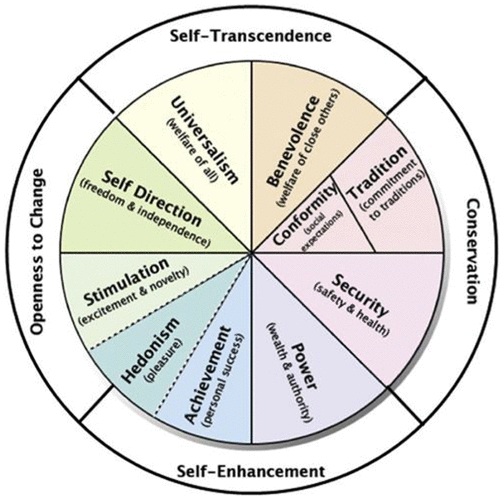

Context
The festive season has begun in India and it is also the time for buying and gifting for ourselves and those we care for. It is perhaps the best time to remember the lives lost to the pandemic and reflect on the need for a “values vaccine” as much as one for the virus.
Analysis
The COVID-19 threat and change of values
- The pandemic is teaching us key lessons about crisis, communication, and misinformation, and is spurring changes in the way scientists study public-health questions.
- The COVID-19 lockdown restrictions introduced in many countries to prevent the spread of the virus provided a unique opportunity to study the impact of a severe global threat on people’s psychological functioning.
- The urban feudalism was on starker display when countless fled the city, including those who worked in our homes and for us such as domestic help, cooks, drivers, hawkers and daily-wage workers.
- During the first phase of lockdown, their salaries were frozen, their safety nets were in tatters, their employers unable or, in some cases, not willing to support them in a lockdown and many hit the road.
- It has been perceived in the society that the responsibility of making India swachha is in the hands of the lower castes and class.
- The pandemic has exacerbated existing vulnerabilities and just as with the disease, co-morbidities play a critical role.
Why do we need Values Vaccine?
- We need an institutionalized system to ensure that vital indicators are being tracked in real-time because nobody from the top in the health establishment visited villages before the pandemic, and nobody counted them with such excitement and sense of purpose.
- The values determine the things that people consider to be important and worthwhile.
- They guide intentional behavior and motivate people to pursue ideas and activities consistent with their values and to avoid those that go against them
- Cultural values motivate people to engage in practices that are consistent with their values and to avoid practices that are contrary to these values.
- The conservation values represent one of the key elements explaining the population’s adherence to government measures in times of pandemic.
- The circular structure of values also allows for the grouping of values into higher-order dimensions:
- Openness to change: self-direction thought, self-direction action, stimulation, hedonism;
- Self-enhancement: achievement, power-dominance, power-resources;
- Conservation: humility, conformity-interpersonal, conformity-rules, tradition, security-personal, security-societal, face; and
- Self-transcendence: universalism-tolerance, universalism-nature, universalism-concern, benevolence-caring, benevolence-dependability.

Change in values and circumstances
- Values will likely change in response to external circumstances because their function is to channel energy and skills to effectively cope with upcoming challenges and normative forces.
- The negative situations result in changes towards focusing on security, while positive changes bring attention to self-expression.
- The worldwide financial crisis in 2008 impacted the values of youth and young adults; specifically, values such as security, tradition, benevolence, and conformity significantly increased, while the importance of hedonism, self-direction, and stimulation decreased.
- The communal values of cooperation, consideration and caring are prioritized, whereas individualistic ones of prestige, popularity and power lose some of their cachets.
- Openness values, seeking stimulation excitement and challenge in life, had been decreasing in importance; however this decrease accelerated at the start of the pandemic.
Importance of Values in Human Life
- Values are generally regarded as the moral standards of human behaviors in the society. It is a kind of quality of humans, which is applied to human activities.
- The knowledge of our values helps us achieve clarity regarding why we do what we do, and accordingly stay on track and live a consistent life.
- The values help us design our life goals since we know what is most important for us today and they are as important as competencies to achieve our goals.
- The terminal values provide us a sense of fulfillment, richness, and reward, and the instrumental or temporary values provide us a direction to achieve our life goals sticking to the terminal values.
Conclusion
The existing evidence suggests that human values, and the extent to which they are shared by fellow citizens, are likely to be important factors for tackling the COVID-19 crisis.
The individuals who attach higher importance to self-transcendence (e.g., responsibility) and conservation (e.g., security) values are likely to be more compliant with COVID-19 behavioural guidelines.
The communications to promote COVID-19 mitigating behaviours could seek to tailor messages to the motives underlying people's values.
The interventions may encourage individuals to reflect on links between their own values and COVID-19 mitigating behaviours themselves, thereby embedding the behaviours more deeply in their values and facilitating long-term commitment.


